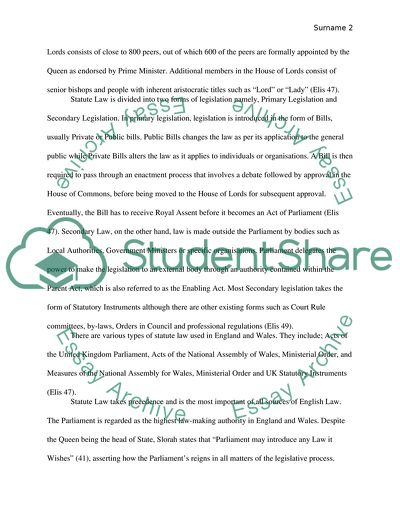Cite this document
(Sources of Law in England and Wales Essay Example | Topics and Well Written Essays - 1500 words - 4, n.d.)
Sources of Law in England and Wales Essay Example | Topics and Well Written Essays - 1500 words - 4. https://studentshare.org/law/1845306-assess-the-different-sources-of-the-law-in-england-and-wales-to-what-extent-have-external-sources-affected-its-development
Sources of Law in England and Wales Essay Example | Topics and Well Written Essays - 1500 words - 4. https://studentshare.org/law/1845306-assess-the-different-sources-of-the-law-in-england-and-wales-to-what-extent-have-external-sources-affected-its-development
(Sources of Law in England and Wales Essay Example | Topics and Well Written Essays - 1500 Words - 4)
Sources of Law in England and Wales Essay Example | Topics and Well Written Essays - 1500 Words - 4. https://studentshare.org/law/1845306-assess-the-different-sources-of-the-law-in-england-and-wales-to-what-extent-have-external-sources-affected-its-development.
Sources of Law in England and Wales Essay Example | Topics and Well Written Essays - 1500 Words - 4. https://studentshare.org/law/1845306-assess-the-different-sources-of-the-law-in-england-and-wales-to-what-extent-have-external-sources-affected-its-development.
“Sources of Law in England and Wales Essay Example | Topics and Well Written Essays - 1500 Words - 4”. https://studentshare.org/law/1845306-assess-the-different-sources-of-the-law-in-england-and-wales-to-what-extent-have-external-sources-affected-its-development.


